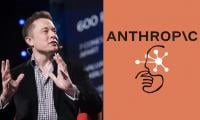‘Mathematics is present in every aspect of our lives’
The connection that every aspect of life has with mathematics is often ignored. To highlight this connection, the Aga Khan University’s Institute of Educational Development (AKU-IED) in Pakistan held a two-day conference titled ‘Mathematics Unites: Connecting, Disciplines, Cultures, and Communities’.
The conference featured speakers from diverse academic and cultural backgrounds, representing India, Malaysia, Nepal, Spain and Singapore. The event team was led by Dr Nusrat Fatima Rizvi and Dr Munira Amirali, both assistant professors at the AKU-IED.
In his welcome note, Dean AKU-IED Professor Farid Panjwani said: “Mathematics is not isolated and confined to our schoolbooks. It is present in every aspect of our lives.” He added that the purpose of this conference is to see how mathematics is connected to the various other disciplines we study in school, and more importantly, the connection of mathematics with multiple aspects of our lives.
Talking about the place of Metacognition in the mathematics classroom, Dr Lee Ngan Hoe, from the National Institute of Education, Singapore, stressed the need for a connection between online and offline classroom teaching with metacognitive practices. He discussed how without metacognition, connections between mathematics and various other disciplines cannot be made.
Professor José Antonio Martínez Aroza of the University of Granada, Spain, discussed the beautiful connection between mathematics and architecture. He took the example of the Alhambra Palace and Fortress Complex to show how aesthetically pleasing results are achieved through various mathematical structures found in this architectural wonder.
Following a similar theme, Professor Fozia S. Kazi of the Islamic University of Science & Technology, India, surveyed the use of mathematical tools of symmetry analysis to answer questions about cultural agency in Kashmir. She discussed how patterns found on Kashmiri decorated forms, including the geometric patterns found on tiles, shawls, lattices, khatamband, carpets and metalwork, can be connected to mathematics.
Professor Jayasree Subramanian at the SRM University, Andhra Pradesh, India highlighted the connection between mathematics, language and the socio-economic background of learners. She challenged the idea that the language of mathematics is universal, because while teaching in a classroom, one has to often explain concepts in the local language for the sake of better understanding and local language only develops within a socio-economic context.
Professor Bal Chandra Luitel of Kathmandu University, Nepal, stressed the need of shifting from conventional mathematics teaching to a programme that deals with the subject while keeping the global socio-political context in mind. Similarly, Professor Munira Ghazali of the University of Malaysia discussed the need for changing the way mathematics is taught to incorporate skill-based learning, to contribute to the achievement of Sustainable Development Goals.
The talks held during these two days will eventually lead to a publication titled ‘Mathematics Unites: Insights from South and Southeast Contexts’. The publication will attempt to challenge the narrow vision of the subject which is often prevalent among students and teachers and unite mathematical ideas with culture and human societies.
-
 King Hospitalized In Spain, Royal Family Confirms
King Hospitalized In Spain, Royal Family Confirms -
 Japan Launches AI Robot Monk To Offer Spiritual Guidance
Japan Launches AI Robot Monk To Offer Spiritual Guidance -
 Japan Plans Missile Deployment Near Taiwan By 2031 Amid Growing Regional Tensions
Japan Plans Missile Deployment Near Taiwan By 2031 Amid Growing Regional Tensions -
 Meghan Markle, Prince Harry Spark Reactions With Latest Announcement
Meghan Markle, Prince Harry Spark Reactions With Latest Announcement -
 Kate Hudson Reflects On Handling Award Season With No Expectations
Kate Hudson Reflects On Handling Award Season With No Expectations -
 6 Celebrities Who Have Been Vocal About Anxiety And 'panic Attacks'
6 Celebrities Who Have Been Vocal About Anxiety And 'panic Attacks' -
 Is This The Future Of Train Travel? Robot Dogs, Drones Are Redefining Public Transit Safety Through China’s New Metro Station Deployment
Is This The Future Of Train Travel? Robot Dogs, Drones Are Redefining Public Transit Safety Through China’s New Metro Station Deployment -
 Sarah Ferguson Seeks Hollywood Backing As Epstein Files Resurface
Sarah Ferguson Seeks Hollywood Backing As Epstein Files Resurface -
 China’s AI Milestone: ByteDance’s Doubao Chatbot Hits 100M Users During Lunar New Year
China’s AI Milestone: ByteDance’s Doubao Chatbot Hits 100M Users During Lunar New Year -
 Think You Know ChatGPT? Here Are 5 AI Levels You’ve Never Seen
Think You Know ChatGPT? Here Are 5 AI Levels You’ve Never Seen -
 Bitcoin Bounces From $62,000 As On-chain Metrics Signal Prolonged Weakness: Here Is Everything To Know
Bitcoin Bounces From $62,000 As On-chain Metrics Signal Prolonged Weakness: Here Is Everything To Know -
 Elon Musk Teases Official Grok CLI For Developers As AI Rivalry With Anthropic Heats Up
Elon Musk Teases Official Grok CLI For Developers As AI Rivalry With Anthropic Heats Up -
 Jennifer Aniston Ready To Walk Down The Aisle Again?
Jennifer Aniston Ready To Walk Down The Aisle Again? -
 Sarah Ferguson’s Plan Now That Andrew Is Thrown Into The Fire: ‘She’s Not Certain She’ll Come Out The Other Side’
Sarah Ferguson’s Plan Now That Andrew Is Thrown Into The Fire: ‘She’s Not Certain She’ll Come Out The Other Side’ -
 ‘The AI Doc’: What AI Leaders Told Daniel Roher Will Keep You Up At Night
‘The AI Doc’: What AI Leaders Told Daniel Roher Will Keep You Up At Night -
 Sarah Ferguson In Hiding As Arrest Fears Grow After Andrew Was Taken Into Custody
Sarah Ferguson In Hiding As Arrest Fears Grow After Andrew Was Taken Into Custody



